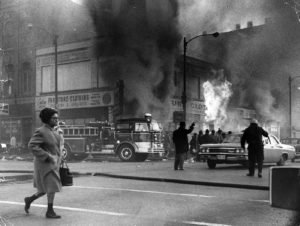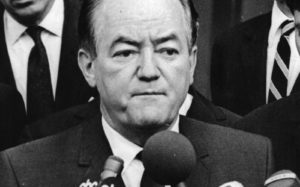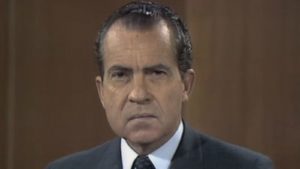
2019 update: I haven’t watched the news since 2016. It’s become blatantly obvious that the mainstream media have an agenda to push, which includes actively promoting one political side, and vehemently attacking the other. It’s scary, and I have no idea how it will end. This article was written about a time when news networks were actually unbiased in their coverage, even as late as 2008. I hope we can soon return to a time when we can trust what news networks say.
I have to tell you, I am completely blown away by Tom Brokaw’s EXCELLENT presentation on History Channel, 1968. I have always felt that 1968 was a pivotal year, not only because of the untimely assassinations of Martin Luther King and Bobby Kennedy, but also because it seemed that rock and roll music also had an early peak that year. I won’t go into that too much, because that will be a future column.
But watching Brokaw’s special, the significance of the 1968 Democratic National Convention in Chicago finally came home to roost with me. It gave Richard Nixon the Presidency, for better or worse.
Let me place a disclaimer here. While politics is probably a part of our lives, my little I Remember JFK soapbox is decidedly APOLITICAL. My commentary is strictly in the historical sense, not the field of opinion.
I don’t know about you, but I get a little annoyed when somebody is telling a story that suddenly pushes their political beliefs.

The Republican Convention had been held early in August, 1968, in Miami, Florida. In a boondoggle for Richard Nixon, it went off peacefully, with nary a protester. The significance of that would make itself obvious a couple of weeks later.
The Democratic party was in an upheaval thanks to LBJ’s March 31st announcement that he would not seek another term as President. He promptly backed his own Veep, Hubert Humphrey, for the job.
But Humphrey had announced his support of the Vietnam War, and America’s youth had a real problem with that. They were backing Minnesota senator Eugene McCarthy, who had spoken out against further supporting the conflict.
Of course, the picture was further muddled by the assassination of Robert Kennedy on June 5. Many of his supporters had switched to George McGovern, giving McCarthy no chance to catch front runner Humphrey.

Frustrated, America’s youth were ready to make their opinion heard, especially in light of Chicago mayor Richard Daley’s hard line against protests. He refused to grant any permits for demonstrations and beefed up his police forces at the convention site to make sure that nothing would happen to embarrass him or the city of Chicago.
As you can see, the whole situation was an enormous powder keg, and all it took was for the Chicago Seven to light the fuse. Protests erupted all over the city during the convention, drawing attention away from the Democratic party’s attempt to present a united front against Nixon. Protestors even made their way inside the convention hall, and footage of incidents like Dan Rather getting trampled by Chicago police attempting to clear the protesters from the room made a deep impression on American viewers. It was an ugly picture.
After it was over, Nixon, in a flash of brilliant insight, saw fit to appear on Rowan and Martin’s Laugh-In. Whether the decision was his or an advisor’s, it was perfect in that America was tired of violent protest, and longed for nice lightweight things like humor. When Nixon said “Sock it to ME?” on the air, it won him the popular vote on the spot.
Humphrey did a 180 on his Vietnam stance in September, but it was too late to win the anti-war vote. Television, which had cost a nervous, unshaven Nixon the 1960 Presidential campaign, won it for him eight years later.
Nowadays, much is being made of the internet’s influence on the 2008 election. But those of us who can recall the 1960’s remember when TV was the most powerful tool that affected Presidential elections.